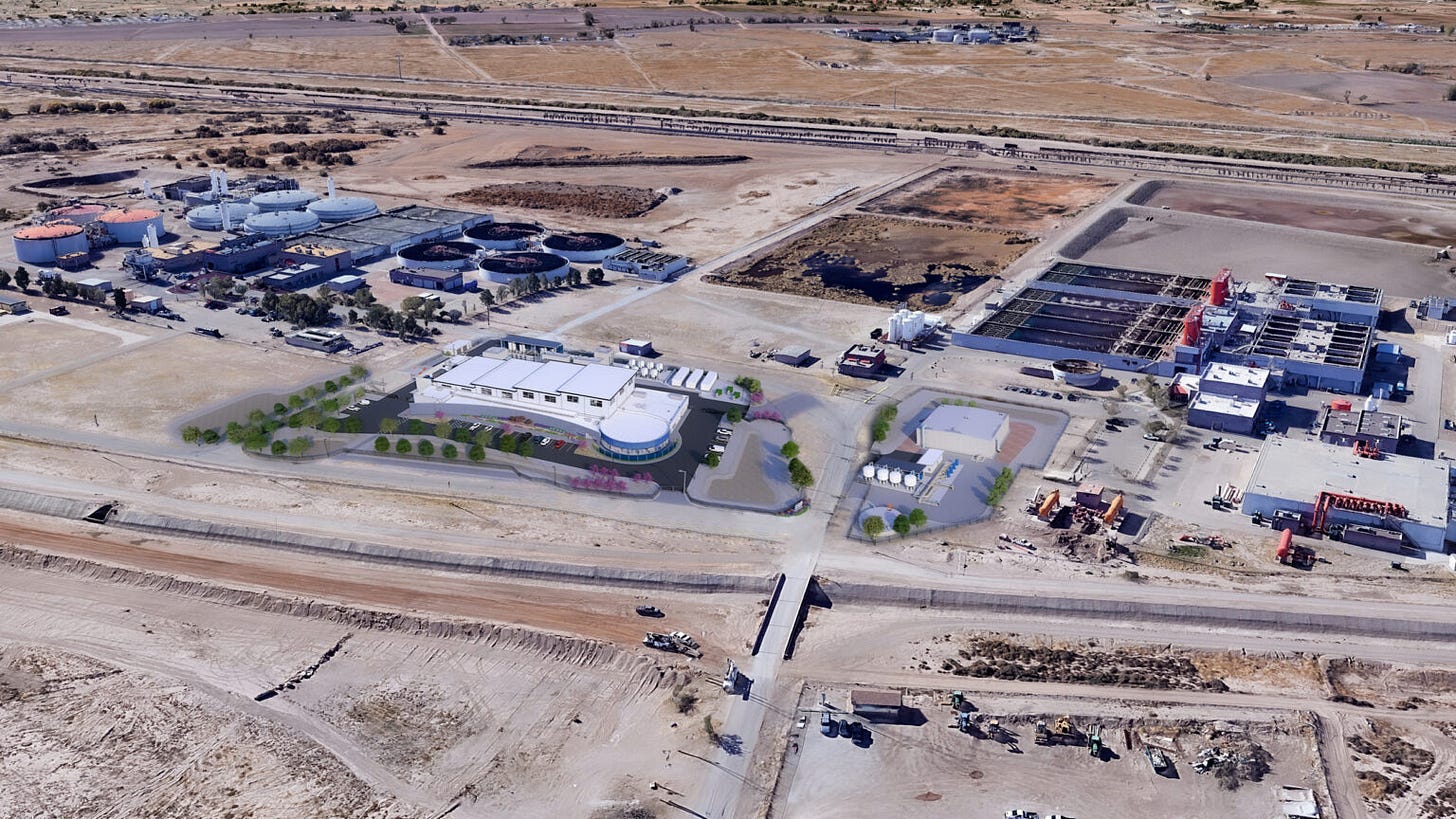Newsletter #21 (3/10/2025)
Tariffs, water in the City of El Paso, US DOL overtime lawsuit revived?, Chegg sues Google
All this tariff talk is annoying……
…..not well thought out, chaotic and potentially economically damaging. I’m not sure what the end game is, and I’m not sure really anyone else does either, save for a select few.
Targeting China makes some sense, at least to a degree, but not to the levels or frequency we’ve been seeing.
But overall, the chaos surrounding the flurry of these announcements is profound. Automakers are exempt, but for only for a month. The trucking industry came out with a muted support of the tariffs for Canada and Mexico, while acknowledging there will be economic damage the longer this goes on. The tin-foil-hatters may not be totally offbase calling for the end game being an engineered recession to, in part, bring down inflation once and for all.
There is no doubt that fiscally the US government needs to rein in government spending, but it is a large roundabout leap to tie this tariff bluster to a providing a balanced federal budget. Making that kind of leap seems to be like that guy who gave the long-winded answer at the end of Billy Madison, Adam Sandler’s epic 90’s comedy, only to have the principal pop off with this beauty:
The City of El Paso always seems to be on the cutting edge of the future.
El Paso’s futuristic attempt at reclaiming, treating and overall conserving water is just the next step for water delivery for the population of the large city in West Texas that gets hardly any rainfall every year.
The project, called El Paso’s Pure Water Center, will “deliver 10 million gallons per day of purified water from the city’s wastewater stream directly into its drinking water supply” by 2028.
The process to deliver the drinking water from wastewater takes essentially four steps and is one of the less costly processes outside of pumping groundwater and surface water. Because those are not reliable options in the desert city, this new facility will fill the void. Other cities in desert environments are taking note, and frankly, even non-desert cities probably need to begin looking at projects like this as their populations grow. The costs are there to justify them, and as an investor in desalinization plants, it is understandable for the City of El Paso to continue pushing ahead to support their growing population.
The US Department of Labor filed a surprise appeal to overturn the denial of the Biden-era overtime rule update.
I’m not sure this is a surprise move; moreso, it is a SHOCK to me. Everyone seemed to think this was dead in the water with the regime change, including me. I’m curious on where this is going.
This is the brief that was granted, and since it has limited information, it is difficult to understand why this is begin resurrected. The deadline for the motion was on Friday (3/7), and I could not find anything online showing an update was made. We’ll see where this goes. Could the Trump Administration’s DOL really be gaming to update the salary test and possibly even the salary threshholds? We’ll see, but it seems more likely they are just preserving their legal support for future adjustments.
The State of Texas has released its five-year economic development plan.
I read through the economic plan released this past week, all 158 pages of it. If you are super curious, bored or interested, you can find the full plan here.
The plan, covering 2025 through 2029, cites some lofty ambitions and lays claim to the State having “firmly established ourselves as a leader in the global economy, competing at the highest level and driving the conversation in critical industries such as advanced manufacturing, aerospace and aviation, energy, technology, and more,” per Governor Abbott.
Four key areas were identified as critical to the 5-year plan, specifically: Business and Industry, Innovation and Entrepreneurship, Workforce, and Infrastructure. Importantly, the State is doubling down on investing in trade relations with Mexico and Taiwan, “will expand programs such as the Governor’s Small Business Summits hosted across the state, the Governor’s Small Business Resource Portal, (and) the Governor’s Small Business Webinar Resource Library”, and will focus on “work-based learning (that) encompasses a variety of opportunities in the workplace, such as paid internships and pre-apprenticeship programs.”
The State’s plan is light on specifics in certain areas, but overall appears there are solid plans to continue to expand economically and continue to bring additional investment from outside. I think there is a long way to go for the State to properly prepare the workforce to the levels needed to support such a large economy, especially in the trades, but the proof so far is there.
Chegg is going after Google for the very life of its business model.
The lawsuit is fascinating to read and has some interesting tidbits (Fortune has a summary recap here), but the short version of it is the premise that Google’s AI platform – trained on ‘stolen’ material such as content from Chegg – is anticompetitive.
The first paragraph from the lawsuit says it all, “This action challenges Google’s abuse of its adjudicated monopoly in General Search Services to coerce online publishers like Chegg to supply content that Google republishes without permission in AI-generated answers that unfairly compete for the attention of users on the Internet in violation of the Antitrust laws of the United States. This conduct threatens to further entrench Google’s generative search monopoly and to expand it into online publishing, restricting competition in those markets and reducing the production of original content for consumers.”
The lawsuit goes on to read that Google basically co-opted their search functionality to unwillingly consume Chegg’s proprietary data (i.e. answers and coaching to educational subjects) to train Google’s AI programs, thereby permitting Google users to bypass Chegg’s business model (subscription-based support) to get that same very support for free. Or at the very least, for Google to profit off the searches, instead of Chegg.
Buried later in the lawsuit are a few examples of Chegg’s allegations, including the following: “In the example below, Google’s AI Overview paraphrases the first search result from Chegg’s website without providing any link to that source in the AI Overview panel. Only by scrolling down the SERP past the AI Overview and clicking on the Chegg website result would a user find the original source that Google mined from its search index to generate its answer.”
This is a lawsuit to follow as time moves on, as it has the potential to affect all of the LLM AI platforms, but make no mistake it is a David vs Goliath situation. Chegg simply does not have the financial resources to wait this out to a jury trial against Google.
-------------------------------------------------------------------------------------------------
© March 2025, Brandon Caldwell. All rights reserved. Hyperlinks are used frequently for proper credit to source material on respective websites, news articles, social media or other sources. Images are used with and in credit to rights reserved to their respective owner(s). While it can be a useful tool, no ChatGPT or other generative AI was used in the production of this newsletter. Opinions are mine and do not reflect the opinion or policy of others including employers past or present.









